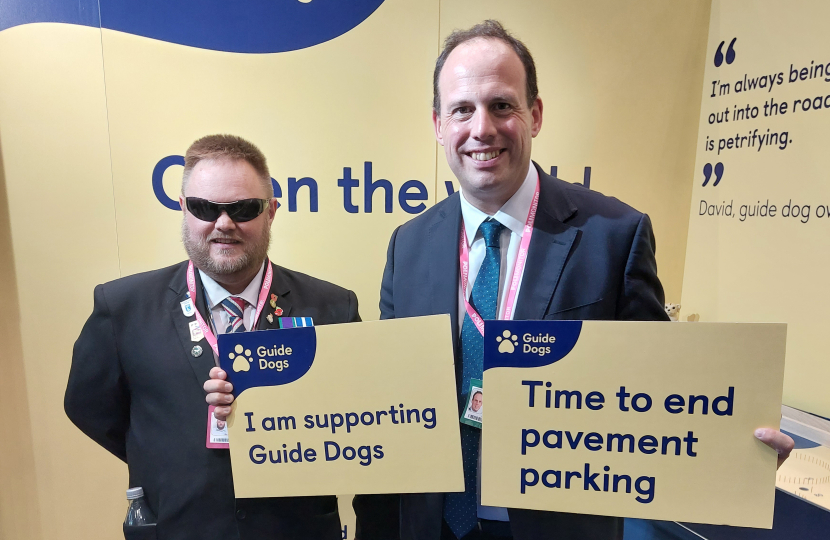
Greg Smith, Member of Parliament for Buckingham learned about the problems pavement parking and street clutter cause for people with sight loss when they met the charity Guide Dogs at Conservative Party Conference.
Greg Smith MP spoke with guide dog owners, including Colin, and staff from the charity and took on the challenge of an interactive pinball game highlighting the obstacles people with sight loss encounter on a daily basis.
Cars blocking pavements are one of the main barriers preventing people with sight loss from walking the streets safely, and in some cases can force people onto the road.
YouGov polling on behalf of the charity Guide Dogs found nearly three-quarters (72%) of people surveyed said pavement parking is common in their area.
Pavement parking has largely been prohibited on pavements in London since 1974, and the charity is calling for the Government to extend this law across rest of England. They say a clear law is needed where pavement parking is the exception, not the norm, to ensure that everyone can walk their streets safely. Three quarters (74%) of councillors also support Guide Dogs’ call for a new law.
Greg Smith MP, who is supporting Guide Dogs’ campaign, said: "Pavement parking is a nightmare for pretty much everyone, but especially anyone with a visual impairment. It is vital we stamp it out to ensure everyone can use our pavements safely. I've raised this before and will continue to do so both in the House of Commons chamber and at the Transport Select Committee."
Eleanor Briggs, Head of Policy, Public Affairs and Campaigns at Guide Dogs said: “The message from the public and local councillors is clear; our streets are not safe because of cars blocking pavements.
"Parking on pavements is a nuisance for everyone, but potentially dangerous if you are a wheelchair user forced onto the road, pushing a child in a buggy or have sight loss and can’t see traffic coming towards you.
"This daily threat can mean people can’t safely get to work, education or to see friends. This is why we’re calling for a law that would empower local councils to tackle this problem.”




